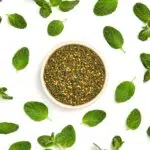National Eye Health Week takes place during the last full week in September every year. This year, it takes place from September 23 to 29. It’s time to check on your eye health! A great time to let people know about its importance and the need for regular eye exams. During this week-long event, the U.K. government and various other organizations plan activities in-line with keeping your vision healthy. Eye care is important for everyone and goes beyond blurry vision, eye irritation, and the need for glasses.
History of National Eye Health Week
The eye was thought of as a white ball in Ancient Egypt. Doctors believed that it contained fluid and that if the fluid leaked out, the person would go blind. They tried to put the fluid back in, but this did not work. Doctors also thought cataracts could be treated by putting hot poker into the eye.
During Roman times, doctors believed poor vision resulted from a cold or wet brain. The treatment was to vomit and do bloodletting to warm up and dry up the brain. Doctors treated eye diseases with herbal medicines based on this idea. In Greek times, doctors started to think that eyes were not just white balls with fluid in them. They began to use lenses to see things more closely, but they were made of glass and didn’t help people see very well.
The real breakthrough came in 1000 A.D. when a Persian scientist, Ibn al-Haytham, studied how light enters the eye and how we see things. He detailed his findings in a book titled “Book of Optics.”
The earliest-known evidence of glasses was found in Italy and dates back to 1286. At that time, they were believed to be worn only by monks and scholars, but they quickly spread in popularity among the general public.
National Eye Health Week is an annual event that started in 2012. It raises awareness about the importance of eye health and the need for people to have regular sight tests. The U.K.’s four national eye health and sight loss charities, including the R.N.I.B., work together during this week to promote eye health and highlight some serious issues surrounding sight loss.
National Eye Health Week timeline
In Ancient Egypt, the eye is thought of as a white ball.
Scientist Ibn al-Haytham writes about how light enters the eye and views things in “Book of Optics.”
Italian monks and scholars wear spectacles and the trend spreads to the general public.
It raises awareness about the importance of eye health and the need for people to have sight tests.
National Eye Health Week FAQs
Which fruit is good for eyes?
Many fruits are rich in antioxidants and therefore have a positive effect on eye health, such as red berries, kiwi, red and green bell peppers, tomatoes, broccoli, spinach, and juices made from guava, grapefruit, and orange.
How do you know if your eyes are unhealthy?
Check for blurred vision, burning and itching in the eyes, fluctuations in vision, or the appearance of a dark spot at the center of your vision.
Can I get my eyesight back to normal?
Most of us have to visit an eye doctor from time to time to help improve our vision. While there is no quick-fix cure for correcting your eyesight, healthy eating habits and sensible choices can help you retain good eyesight for longer. So always see your eye doctor.
How to Observe National Eye Health Week
Get to know your optometrist
Whether you’re looking for a new one or your current one is doing a great job, it’s good to have a positive relationship with your eye-care professional. There will be there for you when you need them — and if you don’t need them yet you want to keep it that way!
See an eye doctor regularly
Many people only go to the eye doctor when they have trouble seeing things up close or far away — but regular visits are vital for catching the signs of early-stage eye disease. Kids should have their eyes tested by age three, and adults should keep up with routine vision tests every two years. If you already have eye conditions like glaucoma or macular degeneration you may need more frequent visits.
Wear protective eyewear during activities
Wear protective eyewear during gardening, working with tools, or playing sports. The sun’s U.V. rays can damage the eyes so wear sunglasses with 100% U.V.A. and U.V.B. protection.
5 Interesting Facts About Eyes
The fastest muscle in your body
A blink typically lasts 100 to 150 milliseconds — in a single second, it’s possible to blink five times.
Your eyes are just a camera
Your eyes function like a camera capturing light and sending the information to your brain.
Babies’ eyes
Newborn babies can see objects about eight to 15 inches away; as they grow, their focus changes.
Blind people can see their dreams
Blind people can dream as long as they were not born blind.
It’s comparable to a camera
It’s equivalent to the image quality you’d get if you combined 24 top-of-the-line D.S.L.R.s into one.
Why National Eye Health Week is Important
It raises awareness
National Eye Health Week raises awareness about the importance of good eye care and encourages people to take action to protect their vision. The initiative also aims to educate people about the wide range of services available in the U.K. to help those with eye conditions.
It educates people
The initiative also aims to educate people. They have an opportunity to learn about the wide range of services available in the U.K. to help those with eye conditions.
It helps people who can't afford eye health care
Many eye health centers will offer discounted or even free eye health checks. Thus the importance of eye health can reach all levels of society. In the end, people will have eye health or at least a cure for eye disease.
National Eye Health Week dates
| Year | Date | Day |
|---|---|---|
| 2022 | September 19 | Monday |
| 2023 | September 18 | Monday |
| 2024 | September 23 | Monday |
| 2025 | September 22 | Monday |
| 2026 | September 21 | Monday |

























